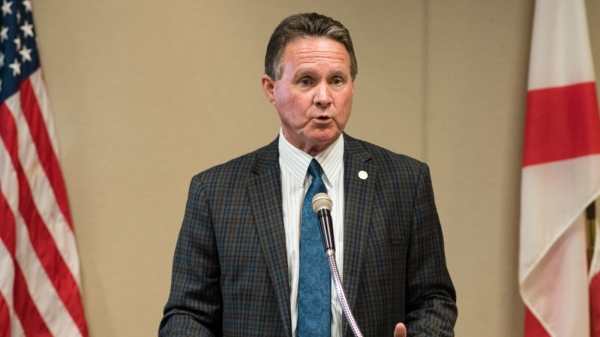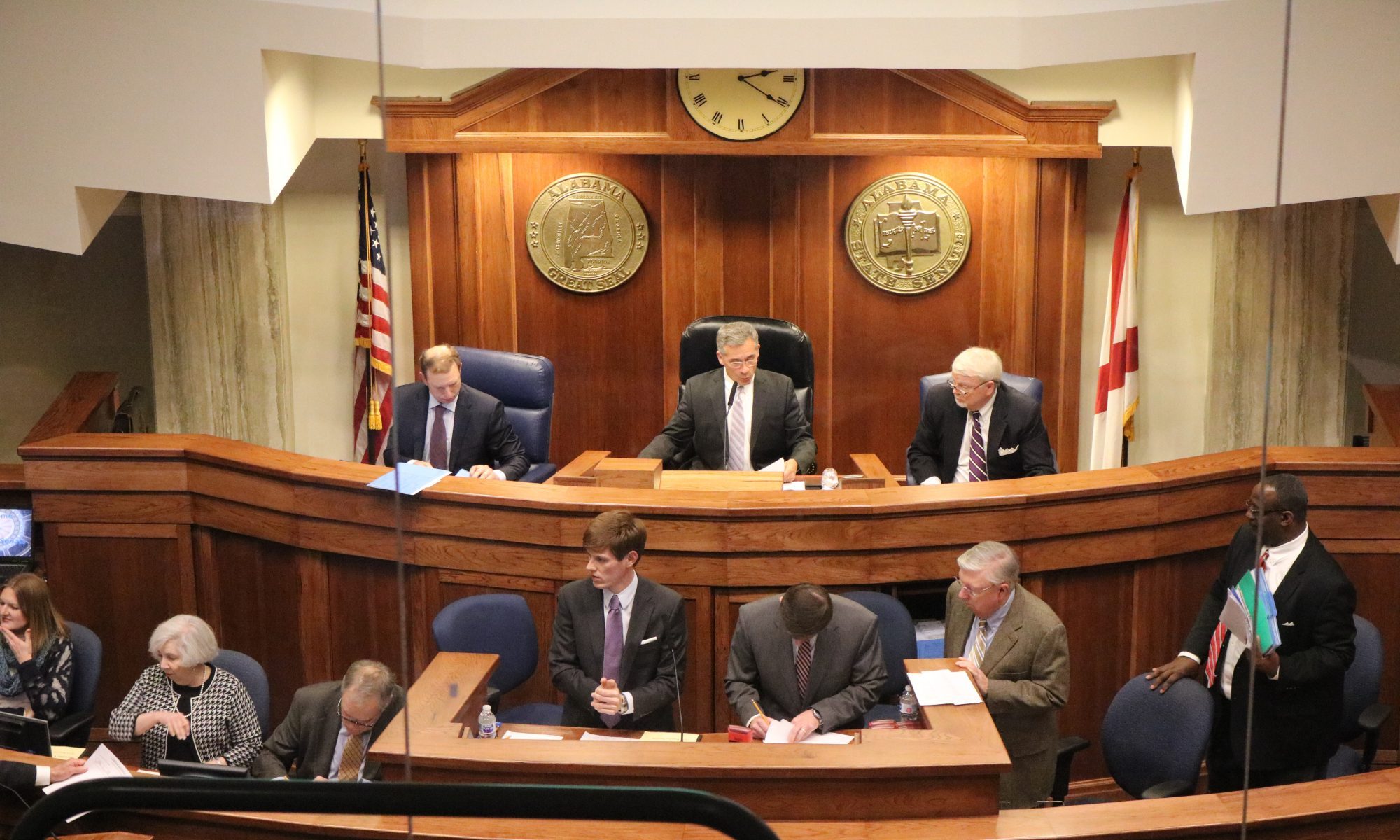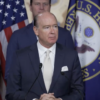By Chip Brownlee
Alabama Political Reporter
In the wake of months of sexual harassment and assault allegations against high-profile politicians and public figures across the country, the Alabama Senate on Tuesday voted to adopt a formal sexual harassment policy.
The Senate voted to implement the wide-ranging and specific workplace harassment policy, which covers members, staff and lobbyists, on a voice vote Tuesday. The measure provides a path for the body to oust members and terminate staffers found in violation.
Sen. Bill Hightower, R-Mobile, who is running for governor as a Republican, sponsored the resolution to implement the policy.
“We need to have a standard,” Hightower said in an interview with APR.
The policy is similar to the current sexual harassment policy already in effect in the Alabama House of Representatives.
It specifically prohibits the sexual harassment of staff, lobbyists and members of the Senate along with those who are “involved in the work of the Legislature.” Those who have been a victim of harassment are encouraged to file a formal complaint with a supervisor or the Secretary of the Senate.
For members of the Senate, complaints would be forwarded to the Legislative Council, and the policy points to a provision of the Alabama Constitution, Section 53, which gives the chamber the power to expel a member if the complaint is deemed valid.
Several specific forms of harassment are explicitly listed in the policy, including the demand for personal favors. Verbal harassment in the form of sexual innuendos, suggestive comments or jokes of a sexual or demeaning nature are prohibited along with nonverbal harassment such as the sharing of suggestive pictures, graphic commentaries, leering, whistling or obscene gestures.
Those covered are now prohibited from touching a person’s body, hair or clothing or standing to close to, brushing up against or cornering a person, according to the policy.
“It refers to behavior that is not welcome, that is personally offensive, that fails to respect the rights of others, that lowers morale, and that, therefore, interferes with work effectiveness,” the policy reads. “Sexual harassment may be over or subtle.”
The policy specifically prohibits the following:
(a) Making unwelcome sexual advances or requests for sexual favors or other verbal or physical conduct of a sexual nature as a condition of employment or continued employment.
(b) Making submissions to or rejections of the conduct the basis for administrative decisions affecting employment.
(c) Creating an intimidating, hostile, or offensive working environment by the conduct.
The decision to implement a formal harassment policy comes after the #MeToo movement began rapidly exposing sexual misconduct allegations against individuals in the realms of government, media and Hollywood.
Dozens of high-profile public figures have resigned, and reports last year showed that the U.S. Congress has paid more than $170,000 in taxpayer money from 2008 to 2012 to settle sexual harassment and discrimination claims against members of the U.S. House of Representatives.
In total, the Congressional Office of Compliance has paid out more than $17.2 million over the past two decades to settle 268 workplace disputes against individuals on Capitol Hill, according to records released by the Office of Compliance, though it isn’t clear how many of them were sexual misconduct cases.
The U.S. House has since voted to require that members pay their own costs for any sexual misconduct claims.
Last month, another bill sponsored by Hightower that would block state funding from being used to pay for sexual harassment or assault claims against state employees and public officials passed unanimously out of an Alabama Senate committee.
If the bill passes, those officials would have to pay out of their own wallets to settle any sexual harassment, misconduct or assault claims.
The Senate Committee on Governmental Affairs approved Sen. Bill Hightower’s bill last month 8 to 0. Hightower’s bill would prohibit the Alabama Board of Adjustment from using state funds to cover such settlements or payments involving any state official — from agency and department employees to legislators and on up to the governor.
The House doesn’t need to weigh in on the Senate’s new policy, and it goes into effect with the Senate’s vote.
The Senate has not taken up Hightower’s bill to prevent public funds from being used to pay for claims alleging sexual harassment against state employees or public officials.


















































